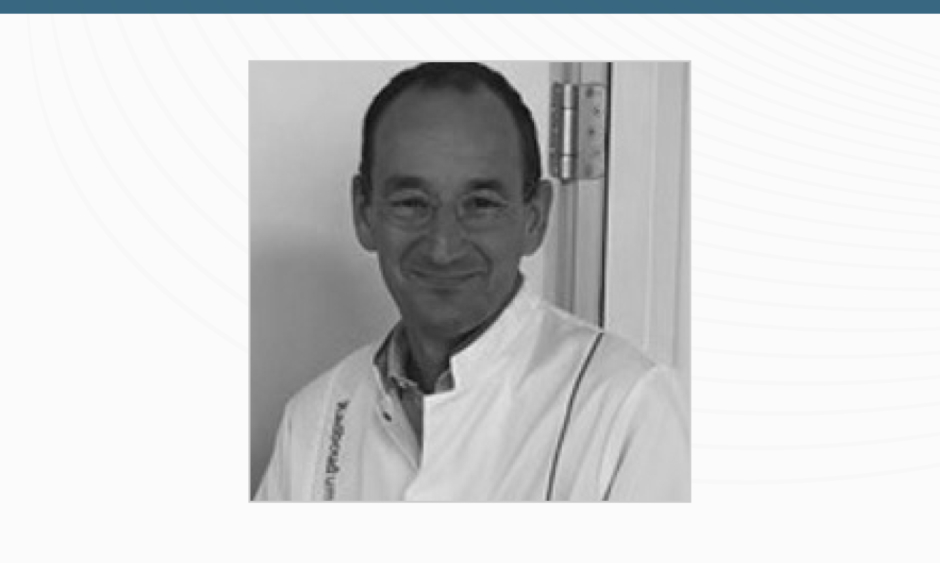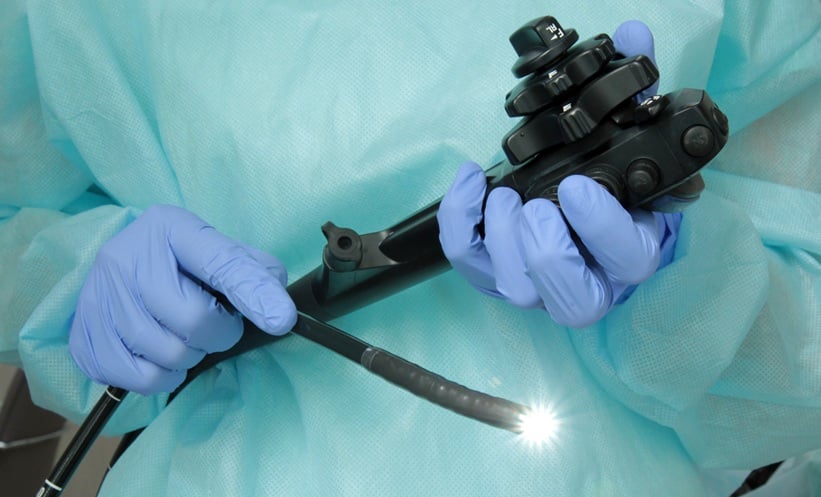Joost Drenth | Professor of Gastroenterology and Hepatology; Head of the Department of Gastroenterology and Hepatology, Radboud University Medical Centre, Nijmegen, The Netherlands
![]()
What led you to pursue a career in gastroenterology, and with such an interest in polycystic liver disorders?
As a medical student I had keen interest in internal medicine and the challenge that comes with solving cases. That is why I really wanted to do a MD-PhD programme and I have been fortunate to do so. My PhD targeted hyper-IgD syndrome, which was, at that time, an ill-recognised inflammatory disorder, and it took me from phenotyping to assessing cytokine profiles to therapeutic trials. We rapidly recognised that the disease was inherited, and I spearheaded an effort that discovered the gene responsible for hyper-IgD syndrome. At the time, I had just finished my internal medicine training and was approached to start a fellowship in gastroenterology. I was drawn to gastroenterology because of the research opportunities, and it felt to me that the space was wide open. At one of my first outpatient clinics, my boss introduced me to a patient with polycystic liver disease. She gave an impressive family history with nieces and aunts suffering from huge livers with many, many cysts. There was no description in literature that fitted with this particular disease. This struck me as an opportunity. I was invited to visit the family. Blood samples were collected, and an onsite ultrasound of their liver was done. With the samples acquired, we went on a hunt and were lucky enough to discover it a few months later. This taught me the power of clinical investigation and has been my driving force ever since.
Do you think there are any misconceptions about your speciality and particularly in one of your research interests, the molecular background of inherited gastrointestinal diseases?
I believe that genes should be seen as a risk factor, just like other components that we assess as contributors to liver disease such as lifestyle (smoking, alcohol use, and an unhealthy diet leading to overweight). We are just beginning to appreciate the power of next generation sequencing and the wealth of data that it generates. We have just left the era where we were hyper-focused on discovering mendelian inherited disorders with clear distinguishable phenotype caused by a single genetic culprit. That is an oversimplification of the clinical reality. I see many patients with so-called cryptogenic liver disease where we have exhausted our conventional diagnostic armamentarium and failed to identify a cause. Genomic medicine can help us to distinguish new genes that contribute as risk factor to liver disease. That will require clinical acumen, and this is where gastroenterologists come in. Discoveries are being made by the prepared mind. Do not stop with telling yourself that this is cryptogenic, just go on travelling the uncharted sea and make your discovery.
Since your appointment as the Head of Department at Radboud University Medical Centre, Nijmegen, The Netherlands, what has been your proudest achievement?
I have worked hard to create a professional environment, injecting science into our clinical thinking, and creating space for clinical investigators. Three developments have made me particularly proud. We run a well-oiled fellowship programme in close collaboration with our regional partners. Fellows are trained at secondary and tertiary referral centres in our region and are exposed to a wide range of gastrointestinal disorders, adding to their expertise. We have personalised the training programme so that it fits with the need of the individual fellow rather than the institute. We have also merged our clinical ward with that of the surgeons and share morning handovers. The shared expertise has benefited us both, and I realise that we should have done this much earlier. We train medical doctors in our department to become clinical investigators, and this has been very rewarding at a scientific and personal level.
You currently have more than 300 international publications to your name for your research in gastroenterology. What do you believe to be the current gaps in literature and which topics merit greater investigation?
It is not about the number of papers; it is the impact one can achieve. Many of my (best) publications have started with a question by a patient from the outpatient clinics. Simple questions such as “What can we do to prevent that this from happening again?” or “Where is this coming from?” may lead to a research programme. I have a pragmatic approach: solving the problem of the patient comes first. A strong personal impetus to do research is to challenge rusty dogma. For example, presence of abdominal pain in a patient with gallstones qualifies for cholecystectomy. We have designed clinical trials to assess the necessity of cholecystectomy and came with surprising answers. I will share one example of what we found. Whilst a cholecystectomy relieves a patient from their gallbladder, 40% of patients will continue to have the abdominal pain that led to surgery. With the abdominal surgeons, we discovered that many patients with gallstones actually have functional dyspepsia. We performed a clinical trial aimed at reducing the volume of cholecystectomies. This led to a large joint research programme supporting the concept that cross specialty collaboration is very valuable.
Back to your question on gaps in the literature and which topics merit greater investigation. Personally, I wish that we directed our efforts towards so-called undruggable disorders, i.e., diseases without a proper medical treatment. For example, the mere fact that we still lack a drug for primary sclerosing cholangitis upsets me. Seeing these patients being unable to change the natural course of the disease is very frustrating.
What does your involvement as a committee member for the United European Gastroenterology (UEG) constitute, and what are the aims of this association?
The UEG is a wonderful creative and professional environment, bringing healthcare professionals together. The UEG’s aim is to improve digestive disease through prevention, research, diagnosis, and cure. As such, it is a driver for better awareness of digestive diseases, giving patients and physicians a voice. One of their flagships is the UEG Week, which is a yearly conference that brings together >10,000 professionals. It has grown to a global marketplace of knowledge exchange in gastroenterology. I like the inclusiveness of the organisation and the can-do mentality. Personally, I am the Editor-in-Chief of the UEG Journal, a relatively young (2013) scientific journal. We have established ourselves among the first tier of gastroenterology journals and I am convinced that there is more to come.
Some of your most recent publications have investigated polycystic liver disease, post-endoscopic retrograde cholangiopancreatography pancreatitis, and cholecystectomy. Where can we expect your future research focus to lie?
Indeed, I am not so picky, and perhaps that stems from a remark that was made at the time of my re-evaluation as professor to expand my research efforts beyond rare diseases. I took that challenge and looking back to these efforts in gallstone disease, endoscopy for dyspepsia, and post-endoscopic retrograde cholangiopancreatography pancreatitis. What they all have in common is that a clinical trial has been a central theme as well as multidisciplinary collaboration. I am a believer in networks and in my country in particular it is relatively easy to collaborate with people. Networking is a game of giving and taking and you should never be afraid to give more away than to expect back. The prize is a well-run clinical trial, with an outcome that has clinical implications. Your role is just to set the wheels in motion.
Over the course of your extensive career in research, what are the most noteworthy developments to the field of gastroenterology you can recall, and are there any exciting innovations on the horizon we should be aware of?
I would like to mention the developments in hepatitis C. When I entered gastroenterology, we could barely identify patients with hepatitis C because of the lack of a good molecular test. Once recognition became possible, we struggled to treat these patients. I recall running clinics where we offered the many patients a year-long treatment with a meagre chance of success and tonnes of side effects. That changed with the advent of direct antiviral agents. These drugs cured patients within weeks. I hardly see new patients with hepatitis C. In fact, we are running a national programme that promises (micro-) elimination of hepatitis C in my country by 2030.
Currently, we categorise disease on basis of conventional tests (primary biliary cholangitis), most dominant affected organ type (inflammatory bowel disease), time of onset (congenital liver fibrosis), or any combination of the above. I expect that genomic medicine will help us better diagnose, better categorise, and better treat patients. We have just begun to scratch the surface will most certainly be impactful in the years to come but on a clinical level of the patient.








